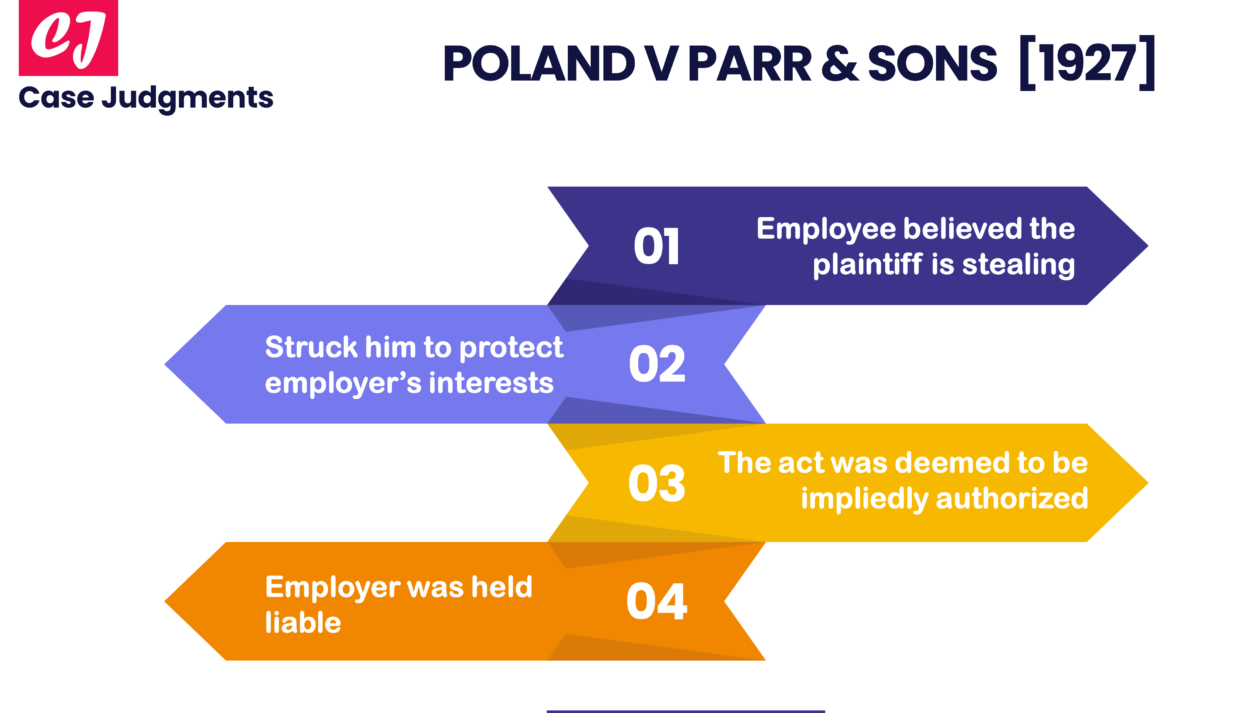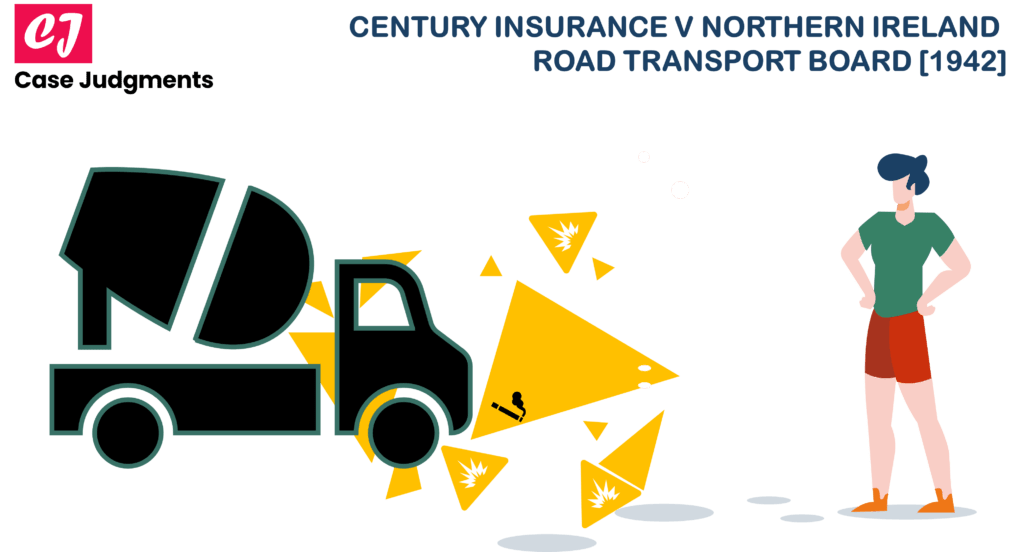
Poland v Parr and Sons [1927]: Case Summary
Case name & citation: Poland v John Parr and Sons [1927] 1 K.B. 236
Court and jurisdiction: The Court of Appeal, England and Wales
Decided on: 1926 June 11
The bench of judges: Bankes, Scrutton and Atkin LJJ
Area of law: Vicarious liability, Liability of Master for Act of Servant
What is the case about?
This is an interesting case about whether or not a master is responsible for the actions of his servant. It concludes that a servant is acting within the scope of his employment if he acts, even outside of his hours of work, for the protection of his master’s property, in the mistaken but honest belief that it is in danger. It was determined that the servant was acting within the scope of his employment.
Facts of the case (Poland v Parr and Sons)
The defendants’ waggon, which contained bags of sugar, was being driven on the highway. It just so happened that H, a servant in their employment who was not at work at the time but was walking along behind it, saw the plaintiff with his hand on the bags of sugar as he passed by. H struck the plaintiff, causing him to fall, and the plaintiff was then run over by the waggon. H had a sincere belief that the other person was stealing the bags of sugar, and his sole intention was to protect his master’s interests. The lawsuit was filed because the defendants’ servant had been negligent, which had resulted in injury to the plaintiff. The servant had believed that the plaintiff had been stealing the sugar, but he hadn’t been doing so.
Issue that arose
Could the master be held liable for the negligence of the servant and the resultant personal injury caused to the plaintiff?
Judgment of the Court in Poland v Parr and Sons
The judges held that an act is not considered outside the scope of the servant’s duty simply because it is not one of the types of acts for which he is specifically employed, or because the time is not an hour at which he is ordinarily at work. (Scrutton LJ)
Atkin LJ stated that “Any servant is, as a general rule, authorized to do acts which are for the protection of his master’s property.” The fact that H was not actually at work when the emergency occurred does not negate the fact that he has the implied authority to protect his master’s property.
Therefore, despite the fact that the employer may not expressly authorize hitting a boy, the Court decided that the employee had the implied delegated authority to act in defense of his employer’s property in an emergency situation.
The Court acknowledged that the actions of the employee were entirely in the interests of the employer, even though this was an extreme way of doing so (he used excessive force and struck the boy). It was not excessive enough that it could be considered to be outside the scope of his employment.
As a consequence of this, the employee’s actions were considered to have been impliedly authorized by the employer, and the employer was found to be liable for the personal injuries that were caused as a result of the employee’s actions.
List of references:
- https://www.cambridge.org/core/journals/cambridge-law-journal/article/abs/tortmaster-and-servantscope-of-employmentimplied-authorityprotection-of-masters-interests/92831CAE031974296199DA1A0896EA10
- https://thepeninsulairelandblog.wordpress.com/2012/07/25/vicarious-liability-implications-for-employers/
- https://www.lawteacher.net/cases/poland-v-parr-sons.php
- https://swarb.co.uk/poland-v-parr-john-and-sons-ca-1926/
You might also like:
More from tort law:

